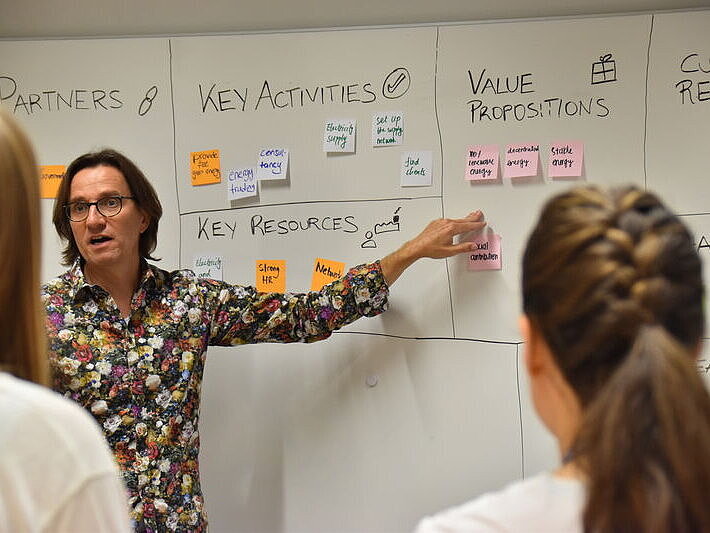
Teaching with a focus on impact – making a positive change to society or the environment – plays a crucial role at the TUM School of Management. Not only is it a key topic in many of the courses taught here; there are some classes that entirely focus on this important topic.

A pathway to have impact and reach the UN Sustainable Development Goals (UN SDGs) is through building your innovation and entrepreneurship skillset. Below, we want to introduce you to some of the courses on impact through innovation and entrepreneurship offered to Master’s students. You can find many of these courses on TUM online – if you have not registered for them already, consider doing so now! And note how many of these courses are not only open to students of the TUM School of Management: given impact often requires interdisciplinary thinking, you may find students from other schools and sometimes even other universities. You can find more information on all of these courses on TUMonline – do consider submitting your registration, even if some application deadlines may have passed already.
For a broader overview, please also see the School’s webpage on Sustainable Management Education. There you can find even longer lists of courses contributing to our ambition to make a change.